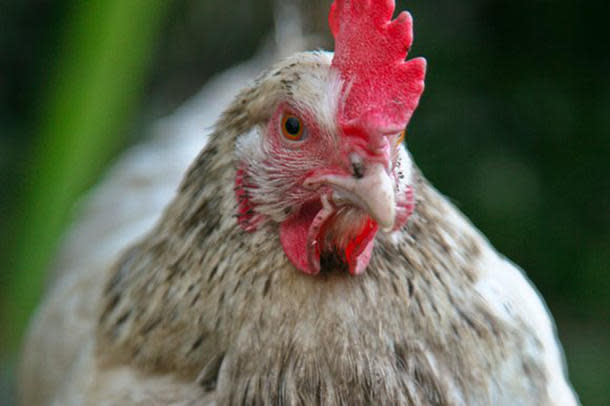 Science and Weather
Science and WeatherScientists solve mystery of how birds lose their penises
A team of British and U.S. scientists has finally solved the mystery of why most male birds lose their penis as they age.
Like other animals, birds reproduce by 'internal fertilization' — where the male transfers sperm to the female, and the egg is fertilized inside the female's body. However, according to the researchers, only about 300 of the 10,000 species of bird have males with a penis that's long enough to get the job done. In the other 9,700 species, the male and female have to coordinate to transfer the sperm between their cloacae — the opening in their posterior that they defecate and urinate from, and also use for reproduction — essentially rubbing their butts together to reproduce.
[ Related: Birds migrating at wrong time for warmer climate ]
The gene responsible for all of this is called Bmp4, or 'Bone morphogenetic protein 4', which can control cell death. In the the 'lucky' species, like ducks and emus, Bmp4 stays switched 'off' as the males grow towards adulthood, allowing their penis to grow normally (or sometimes 'abnormally', given that a duck's penis can be as long as their entire body). For the other species, this gene switches 'on' when they're still embryos, and stays on, causing their penises to stop growing and then shrink away.
To figure out if this was really the case, the researchers inhibited the Bmp4 from switching on in male chicks, and saw that their penises developed normally. They also activated the Bmp4 in ducks, and saw that their penises stopped developing.
"Our discovery shows that reduction of the penis during bird evolution occurred by activation of a normal mechanism of programmed cell death in a new location, the tip of the emerging penis," said study co-author Dr. Martin Cohn, from the University of Florida in Gainesville, according to BBC News.
Now, this solves the 'how' of the matter, although the 'why' still remains unclear.
"One idea is that choosing to mate with males who have a reduced or absent penis confers some advantage to females by giving them control over copulation and the paternity of their offspring," said Ana Herrera, the University of Florida graduate student that led the study, according to Popular Science.
[ More Geekquinox: Record tornado had rare backwards companion ]
One of the side-effects of solving this mystery is that scientists may be able to figure out how Bmp4 affected other species, causing them to lose limbs or other body parts as they developed past their embryonic stage. One thing that Bmp4 also apparently controls is hair-loss, so this could actually give insights into a cure for baldness!
For now, though, it's added another piece to the puzzle of evolution, and perhaps to the puzzle of why roosters always look a little angry.
"Genitalia are one of the fastest-evolving organs in animals, from mollusks to mammals," Cohn said, according to BBC News. "It is also the case that genitalia are affected by birth defects more than almost any other organ. Dissecting the molecular basis of the naturally occurring variation generated by evolution can lead to discoveries of new mechanisms of embryonic development, some of which are totally unexpected. This allows us to not only understand how evolution works, but also gain new insights into possible causes of malformations."
(Photo courtesy: Getty Images)
Geek out with the latest in science and weather.
Follow @ygeekquinox on Twitter!



